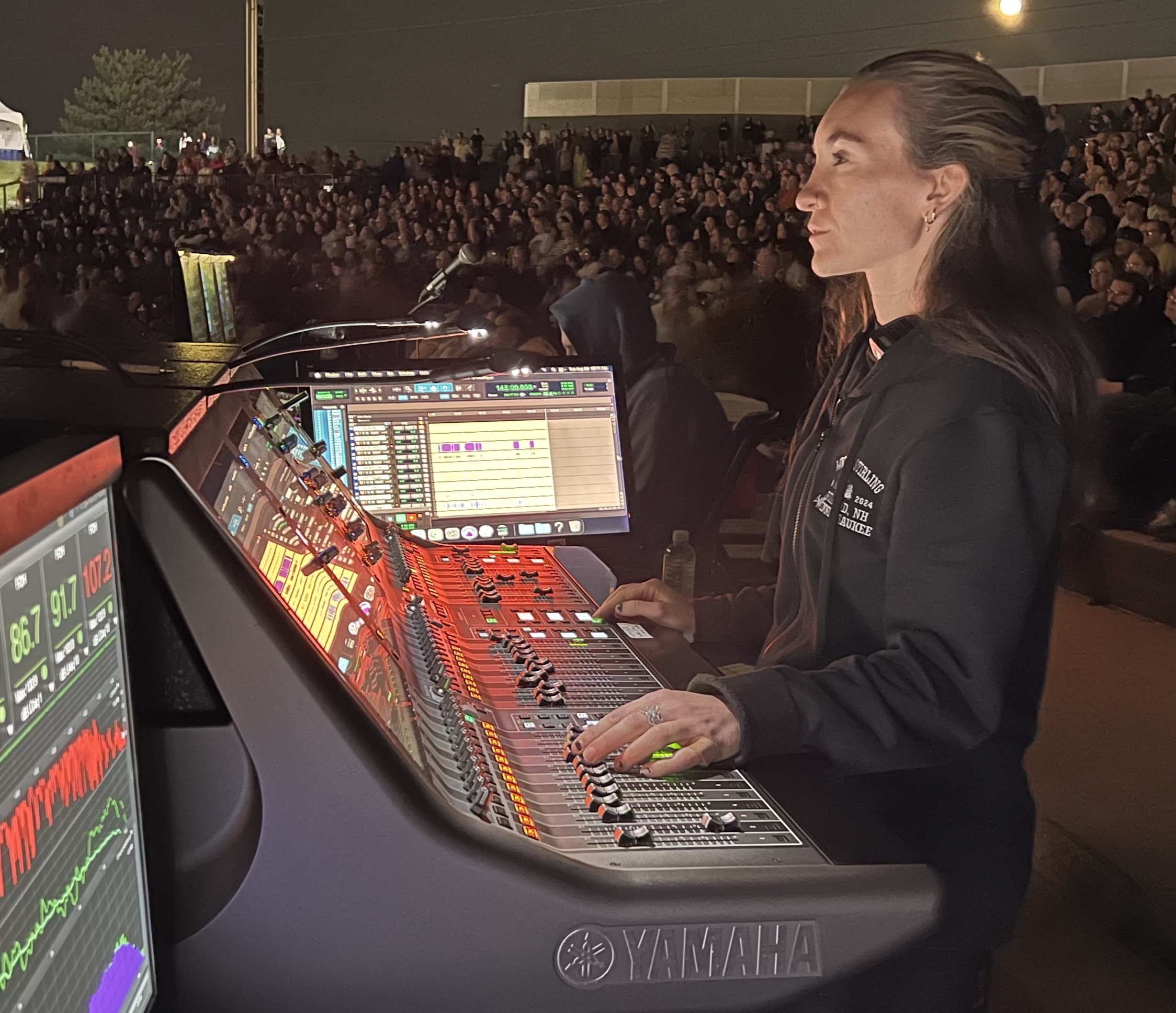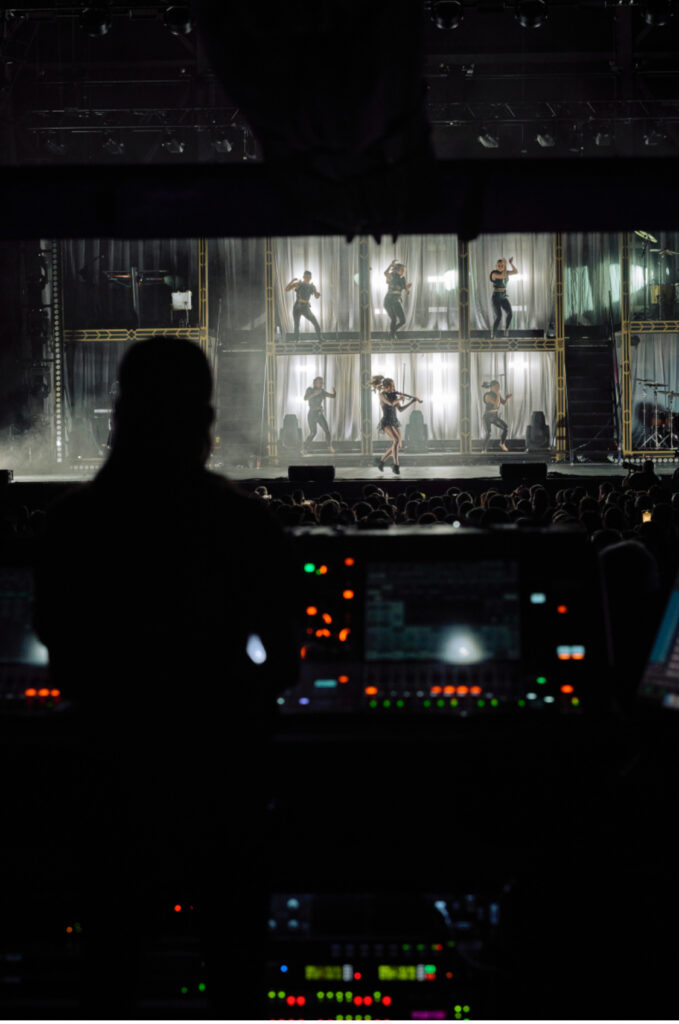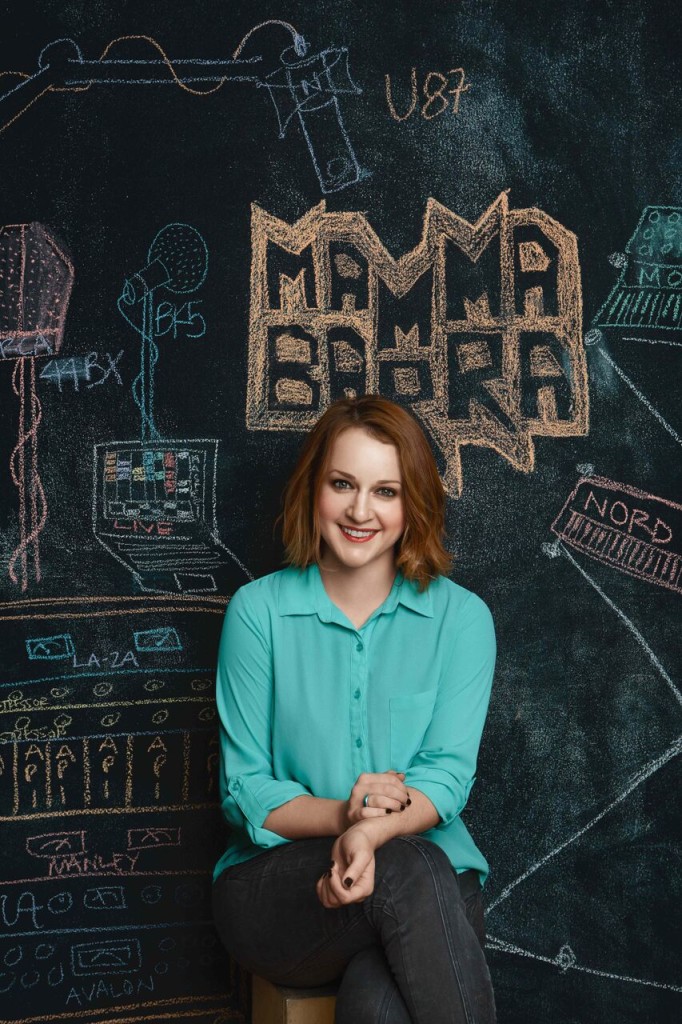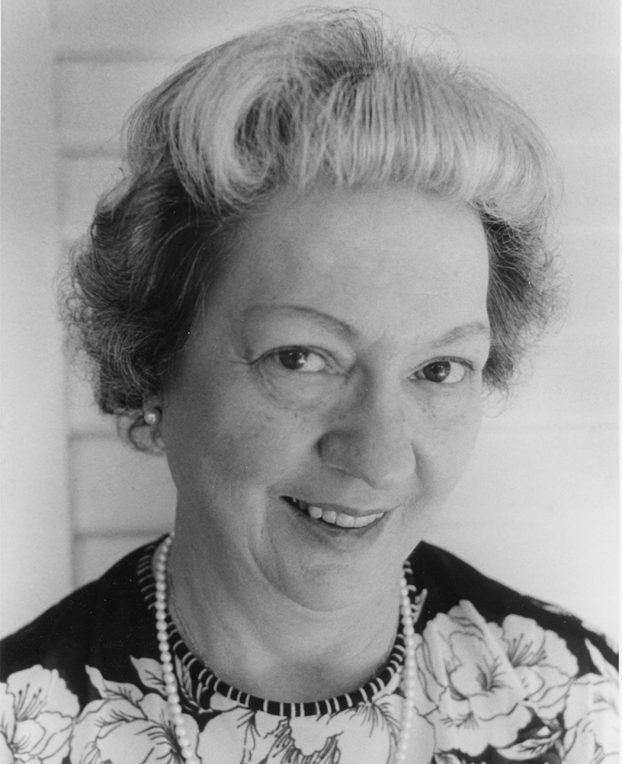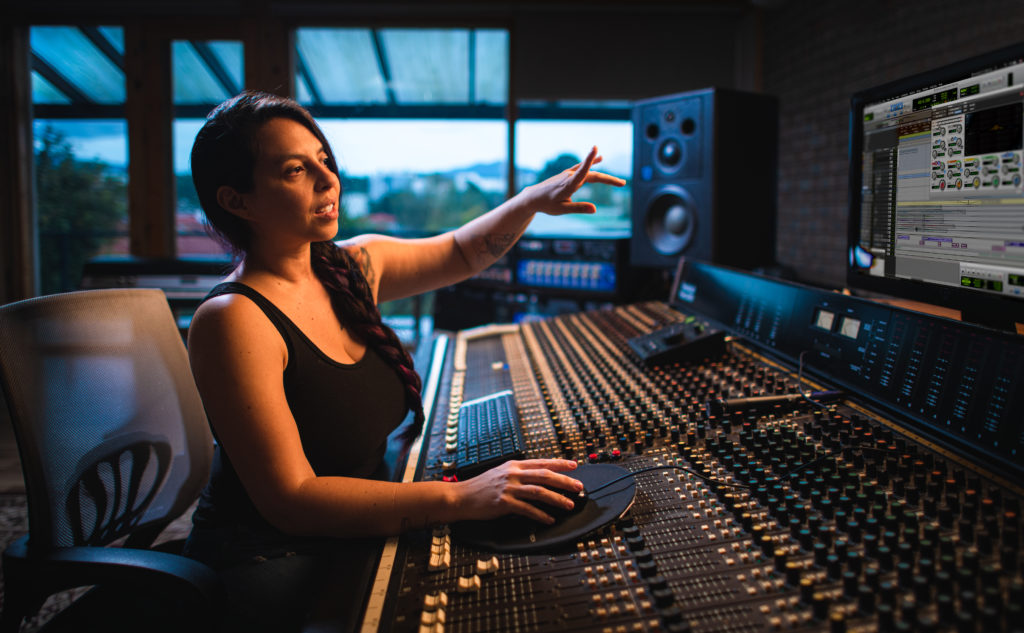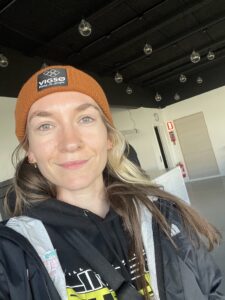 Sage is a freelance touring FOH engineer and classically trained flautist. In December 2018 she graduated from Middle Tennessee State University with a B.M in Music Industry and a B.S. in Audio Production. While in school, Sage began working at a major local rehearsal studio, which she continued to pursue following graduation. She started touring as a FOH engineer in the fall of 2021 with country artist Riley Green and currently mixes FOH for violinist Lindsey Stirling. When she’s not on the road, Sage enjoys mixing local shows and spends her free time rock climbing and playing music.
Sage is a freelance touring FOH engineer and classically trained flautist. In December 2018 she graduated from Middle Tennessee State University with a B.M in Music Industry and a B.S. in Audio Production. While in school, Sage began working at a major local rehearsal studio, which she continued to pursue following graduation. She started touring as a FOH engineer in the fall of 2021 with country artist Riley Green and currently mixes FOH for violinist Lindsey Stirling. When she’s not on the road, Sage enjoys mixing local shows and spends her free time rock climbing and playing music.
Sage has dedicated the past seven years to working in audio, a passion deeply rooted in a lifelong connection to music and musicians. Growing up, Sage was immersed in a musical environment and began learning to play instruments at a young age.
Early experiences hinted at her future in audio. A cousin introduced her to using microphones when she was just a child, and a memorable moment at an experimental aircraft convention stood out: her father encouraged her to approach a performer and ask how he amplified his flute. As a flautist herself, this interaction sparked curiosity about sound amplification. These gradual exposures laid the foundation, but it wasn’t until high school that Sage fully immersed herself in production and mixing. By her junior year, she realized that audio could become her career path.
After high school, Sage pursued her passion academically at Middle Tennessee State University, where she studied Audio Production and the Music Industry. Her dedication and hard work earned her two bachelor’s degrees, solidifying her expertise and commitment to the field.
Career Start
How did you get your start?
I started working at Soundcheck, the rehearsal studio in Nashville, before I graduated college in 2018, and following graduation I maintained employment there until 2021. Outside of Soundcheck, I spent a lot of time finding local festivals, venues, and churches who would let me get behind a console. I got picked up for a tour in the Fall of 2021. In the beginning, before my time at the rehearsal studio, I had a hard time convincing people to let me mix, but met some folks at a bluegrass festival who gave me a shot.
How did your early internships or jobs help build a foundation for where you are now?
These early gigs taught me hard skills, like basic application of audio fundamentals, and how to read manuals and then apply that information. I learned how to use my voice and take control of a soundcheck.
What did you learn interning or on your early gigs?
My early gigs taught me that there was never a wrong question and no shame in asking for help. One time, I fumbled so hard because I couldn’t figure out a wacky show file, and compromised the band’s show. I disappointed a lot of people. But it gave me time to reflect on the massive mistake, and I sharpened my skills and recovered. I think people forget that we learn from mistakes, and while I was (and maybe still am) ashamed of that experience, it showed me where I was weak and what I needed to do to improve. In this situation it would have been really easy to use a resource that was definitely available to me, and that was calling another engineer that was also on staff who had most definitely seen that file before.
Did you have a mentor or someone that really helped you?
I feel like I could truly shout out so many people, which I’m grateful for. It’s awesome to know I’ve built a little community. I have a friend named David Bliss who was the first person ever probably to let me take a crack at mixing. In the beginning he let me have hands-on experience learning the basics and gave me room to make mistakes and be curious. He’s still a very good friend of mine. My team from my first tour was huge to my success, including all the other engineers on tours we were support on. I’m so grateful to people like Brett “Scoop” Blanden and Wayne Pauley also who have such a passion for their careers and have been so influential in mine.
Career Now
What is a typical day like?
My day looks a little different depending on what tour I’m on, but generally follows the same structure. First, a non-negotiable is that I find coffee and a light morning snack. Then, once I walk into the venue, I get a lay of the land, scoping out the load-in and snake paths to FOH. I might chat with local audio or my SE about expectations for the day/PA, and see how my monitor engineer even feels about the place. Once I get setup, time permitting, I will get a virtual soundcheck going and work on the show file until it’s time to tune the system. That final process can vary depending on if I’m the SE or if I have mine with me, but regardless we’ll measure the system and listen and do lots of walking to make sure coverage is optimal, and that it not only sounds correct but also feels correct.
How do you stay organized and focused?
To stay organized and focus, I take a lot of notes. I have a little notebook that I put my mix notes, analysis, and description of the room into, and I also have little gaff tape notes all over my console that I come back to as “to-dos” the next day. These include mixing notes to myself, or criticisms from people, or things I wish to do better, including interpersonal interactions.
Sometimes staying organized and focused can be challenging. I’ve made a lot of decisions to make sure I’m doing my best to keep my brain healthy to support how tough touring can be. I’m sober, so that helps my mental focus a ton, and also I’ve noticed if I’m eating well and taking time to workout, I tend to feel more alert and can settle into a zone during the show.
What do you enjoy the most about your job?
I honestly just love mixing. I love the challenging venues as much as I love nights when all the variables align and I can just focus on having complete creative control. It’s the most fulfilling thing to be a part of people’s visions and help projects and messages come to life. I love that not every day is the same, but there’s a thrill to chasing the 1% in my mix everyday and finding solutions to creating the same show.
What do you like about touring?
I love traveling, especially to Europe. A lot of small towns in the States are beautiful and I’m always pleasantly surprised by a lot of places we go to where the food or city itself is incredible. Equally, touring internationally has been a huge reward. I’ve seen Banff, been to Jerusalem, and seen things I’ve read in books that I never imagined I’d get to see. I also really enjoy getting to see so many of my friends and family that live around the world. I’ve run into people in the most unexpected places, like a buddy from college in Amsterdam this past fall.
What do you like least?
Being away from loved ones during adverse times.
What is your favorite day off activity?
I love to go hiking, explore local museums and meals with my friends. On days off I try to squeeze in a run, which is so important to my mental health. I also have a cute Olympus OM1 that encourages me to get outside and explore the town.
What are your long term goals?
I definitely want to keep touring, and continue mixing FOH, for as long as I can. I love being a part of high production shows, but really I just want to make good music with people who are kind and passionate about their craft. Whether that is bigger production or bigger venues, I want to keep the ceiling high. It’d be awesome to mix a show at Madison Square Garden and mix a headline stadium tour someday. Maybe someday I’ll work for a console company or get into A&R for some gear manufacturers.
What if any obstacles or barriers have you faced?
Most of the time when people question me, it’s because I’m young and have a shorter experience touring in comparison to many people. The arguments in question are pretty much always systems related, and why I want to make some decisions, like preferring flown subs over ground subs.
How have you dealt with them?
Honesty goes a long way. I won’t pretend I know something if I don’t, so I’ll allow other people to make their case and hear them out on it, but at the end of the day, I’m mixing the show for an artist I was hired by. Some things I ask for are almost tried-and-true, but sometimes there are other ways to achieve a goal, so I enjoy inviting people into the conversation. Usually, explaining my goal and perspective helps both of us reach common ground.
Advice you have for women who wish to enter the field?
- Perseverance: Don’t be discouraged trying to find your first gig. You’ll be told “no” a bunch.
- Be yourself: You don’t have to have a mask on. Maybe in some instances you should, a first impression goes a long way of course, but there is room for everyone somewhere and you’ll enjoy yourself and your career so much more if you can find work that also supports your values and interests.
- Don’t be scared by other’s occasional abrasiveness. We live in tense conditions, and while some people’s attitudes may feel personal, it often is not.
- Read. A lot. It builds your confidence and comprehension, even if you don’t retain the information right now. It’ll come to you eventually. Also, there is so much more information on the internet now than when I started, which was not that long ago. Use all the communities and Youtube to stay proactive and continue learning.
- Be curious and be willing to keep learning throughout your career, and be willing to be wrong, because that’s inevitable and not a bad thing.
- Be firm and assertive; a lot of people will question you and your decisions, but trust yourself in the technical decisions you make.
Must have skills?
Good aural recognition and work to improve it constantly. Listen to a lot of music.
Solid troubleshooting and level-headness. Understand gain structure. If you want to be a mix engineer, also be willing to understand line array theory and understand how your system is affecting your mix, and so you can talk to your SE.. If you want to be a systems engineer, be able to relate to your engineer and speak their language to help them translate their mix. Be able to solder and repair many things.
Favorite gear?
Currently, my console of choice is definitely the Yamaha Rivage PM5. Aside from control surfaces, I really love the Xvive wireless transmitters for a quick and dirty PA tuning, and my Soundbullet.
Anything else you want to add or contribute?
I graduated, I had two degrees. On paper it probably looks awesome from a traditional perspective. In reality, I kind of struggled with school. I’m a bad test taker and tried balancing way too many activities. But while I was attending school, I was working in an industry I wanted to be in and was finding ways to get a bunch of other hands-on experience. My dad always said that I shouldn’t “let my schooling get in the way of my education.” School was influential, for sure, and not a waste, but the most significant part of that experience was the connections I made and the people who took a chance on me, not because I was studious, but because they saw my interest and how badly I wanted to make it happen. I don’t think it was my degree that got me here, but instead my work ethic, determination, and the community I gained from that experience.
